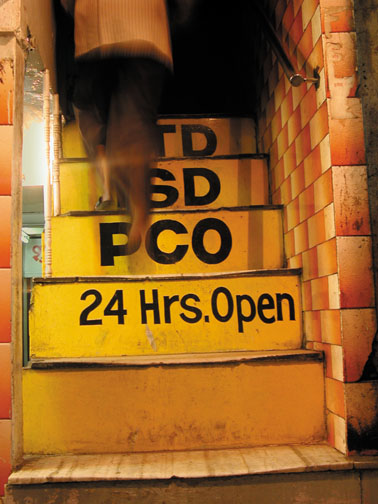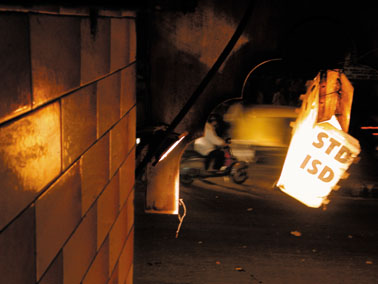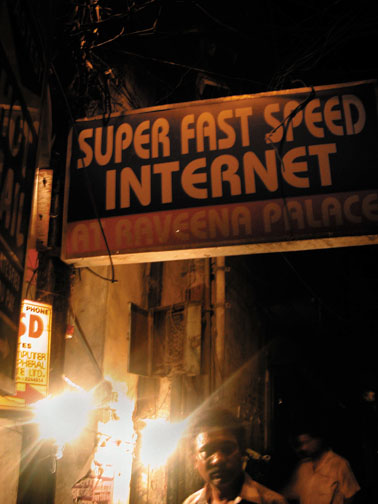A Year in the Life of a State

May 16, 2000
The IT (Information Technology) India Act 2000 makes hacking a penal offence,
punishable with imprisonment or fine under Section 66. The IT act also
allows only limited privacy, and asks for private keys of higher levels
of encryption to be submitted to the government.
September 17, 2000
The Indian Home Affairs Minister recommends a scheme to put in place a
multipurpose national citizen identity card and a computerised citizens
database to 'check the influx of illegal emigrants.'
December 29, 2000
A man, whose name was given as 'Abu Shamal', is killed in a pre-dawn police
raid on suspicion of being a terrorist. Abu Shamal worked in a computer
centre and cyber cafe called Knowledge Plus, in Okhla. The Delhi Police
had been scrutinising his email messages.

January 03, 2001
The National Cyber Cop Committee—set up by the Indian software industry
body, NASSCOM—is advised by a group of hackers between the ages of
14 and 19.
February 15, 2001
India witnessed the first two cases to be registered under Section 66
of the IT Act 2000.
The first case is registered in Raigarh in the newly-formed state of Chattisgarh—two
people are arrested. The second case of hacking is registered by the Delhi
Police against two partners of a Web hosting company.
March 13, 2001
A city court directs the Delhi Police Special Cell to constitute a team
of computer experts to look into the possibility of encrypted messages
being hidden within the large number of image files seized from the computer
hard drive of a person who was also an acquaintance of 'Abu Shamal'.
April 14, 2001
The Draft Communications and Convergence Bill is shortly to be placed
before Parliament in India. It makes provisions for the mandatory licensing
of multimedia web content providers, enables interception and surveillance
of messages in the interest of 'national security' and makes the transmission
of content deemed 'obscene' a punishable offence.

May 06, 2001
A Delhi teenager is arrested under the IT Act 2000 for having put up what
is considered to be an 'obscene' website. The teenager is sentenced by
a juvenile court to 14 days judicial custody at the juvenile remand home
in Timarpur, North Delhi.
May 15, 2001
Mumbai cops place obstacle on information superhighway. To plug into a
terminal, net users will need to show ID cards at cyber cafes, and foreigners
will need to show passports or flight tickets.
June 4, 2001
A Prisoner Identification and Tracking System is implemented as a pilot
project at the Cherrapalli Prison in Hyderabad, Andhra Pradesh. The 150
acre prison houses over 3000 inmates, and is the first prison in the country
to experiment with this technology. The prison authorities have installed
local positioning systems, which provide real time information on the
movements and whereabouts of the prisoner, who has a label tagged on to
him. If the label is removed, an alarm is triggered.

Sarai:The New Media Initiative
29
Rajpur Road, Delhi 110 054 | www.sarai.net